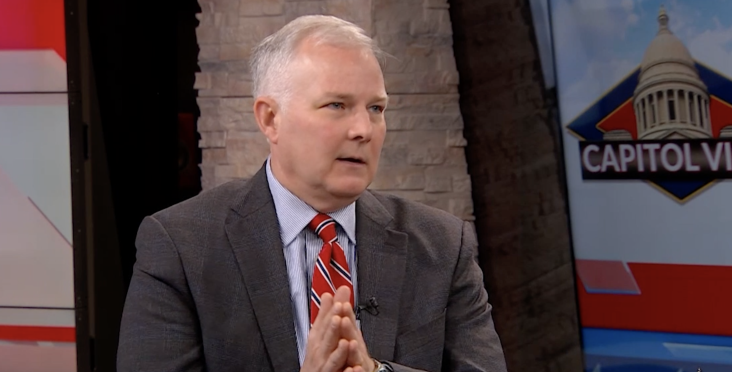AG Griffin, state sue YouTube and Google
by September 30, 2024 3:11 pm 378 views

Arkansas Attorney General Tim Griffin.
The state of Arkansas is suing YouTube, Google and its parent company, Alphabet, Attorney General Tim Griffin announced Monday (Sept. 30). Griffin filed a lawsuit in Phillips County Circuit Court charging the companies with violating the Arkansas Deceptive Trade Practices Act.
It says YouTube has engaged in deceptive and unconscionable trade practices, created a public nuisance, and unjustly enriched itself at the expense of the health of Arkansas’ young people.
“YouTube makes a lot of money off Arkansans – particularly young Arkansans, minor Arkansans,” Griffin said in a press conference. “And it’s because, in large part, they have intentionally designed their product to be addictive.”
The lawsuit said that YouTube, the most popular social media company among young people, has deceived users and parents about the safety of its platforms – YouTube, YouTube Kids, YouTube Premium, and YouTube TV.
It says that social media leads teens to compare themselves to others; displaces sleep, exercise and real social interaction; encourages children to view unhealthy content; and exposes children to pornography.
YouTube’s platforms use algorithms and rewards “to intentionally alter users’ behavior, creating habits, addiction, and an overall harmful experience for minors,” the lawsuit states. It says that minors are particularly susceptible to its features because their brains’ prefrontal cortexes, which play a role in self-regulation, are not fully formed.
As a result, it has contributed to a mental health crisis with widespread disorders including depression, self-harm, body dysmorphia, and suicidal thoughts and attempts.
“This increase in mental health problems among children is not an accident, but rather, the result of calculated efforts by social media companies to attract and addict youth to their platforms and to grow revenues without regard for the harmful effects that these companies know exist,” the lawsuit says.
As a result, the state of Arkansas has had to pay millions of dollars for mental health and other services, the lawsuit says. The state seeks “all remedies available, including, but not limited to, injunctive relief, civil penalties, damages, restitution, and abatement.”
It asks the court to declare YouTube’s platforms to be a public nuisance, to prevent the company from engaging in deceptive actions, and to “disgorge and forfeit” all profits derived from its unfair and deceptive practices. It also wants the company to fund prevention education and treatment for problematic use of social media.
Google provided this response to the Arkansas action, according to an Associated Press report: “Providing young people with a safer, healthier experience has always been core to our work. In collaboration with youth, mental health and parenting experts, we built services and policies to provide young people with age-appropriate experiences, and parents with robust controls. The allegations in this complaint are simply not true.”
Griffin said Arkansas is the first state to file this kind of suit against YouTube.
YouTube was bought by Google in 2006. In 2023, it earned more than $31.5 billion in advertising revenues, the lawsuit states.
The lawsuit states the company uses data it collects on young users to target ads to them. However, it does not have effective age-verification measures and parental controls. It requires a user to enter an email address and birthdate, which it does not verify, but a user can change the birthdate in their account settings after registering. The company’s data collection capabilities would allow it to determine if a user is a minor, but it continues to collect data and will not redirect the user to YouTube Kids.
The lawsuit says YouTube did not inform users or parents about their product’s dangers, thereby taking advantage of children and adolescents.
“Despite having internal research detailing the addictive nature of the features being developed and implemented into YouTube’s product, Defendants led users and the parents of young users to believe their social media platforms were safe for use by young people, including through the release of the YouTube Kids product,” the lawsuit says.
Griffin last year sued Facebook, Instagram, Meta and Tiktok for deceiving users and parents about their apps’ safety. In June, he announced he was suing Temu, the Chinese online retailer. In September, he joined 41 other attorneys general in sending a letter to Congress urging it to pass legislation requiring algorithm-driven social-media platforms to have a U.S. surgeon general’s warning.
Griffin said in the press conference that two lawsuits he has filed against TikTok and one against Meta, the parent company of Facebook, have gone well so far. He expects both to eventually make a settlement offer after initially seeking to fight the lawsuits.
He expects the lawsuit against YouTube to follow that same pattern.
